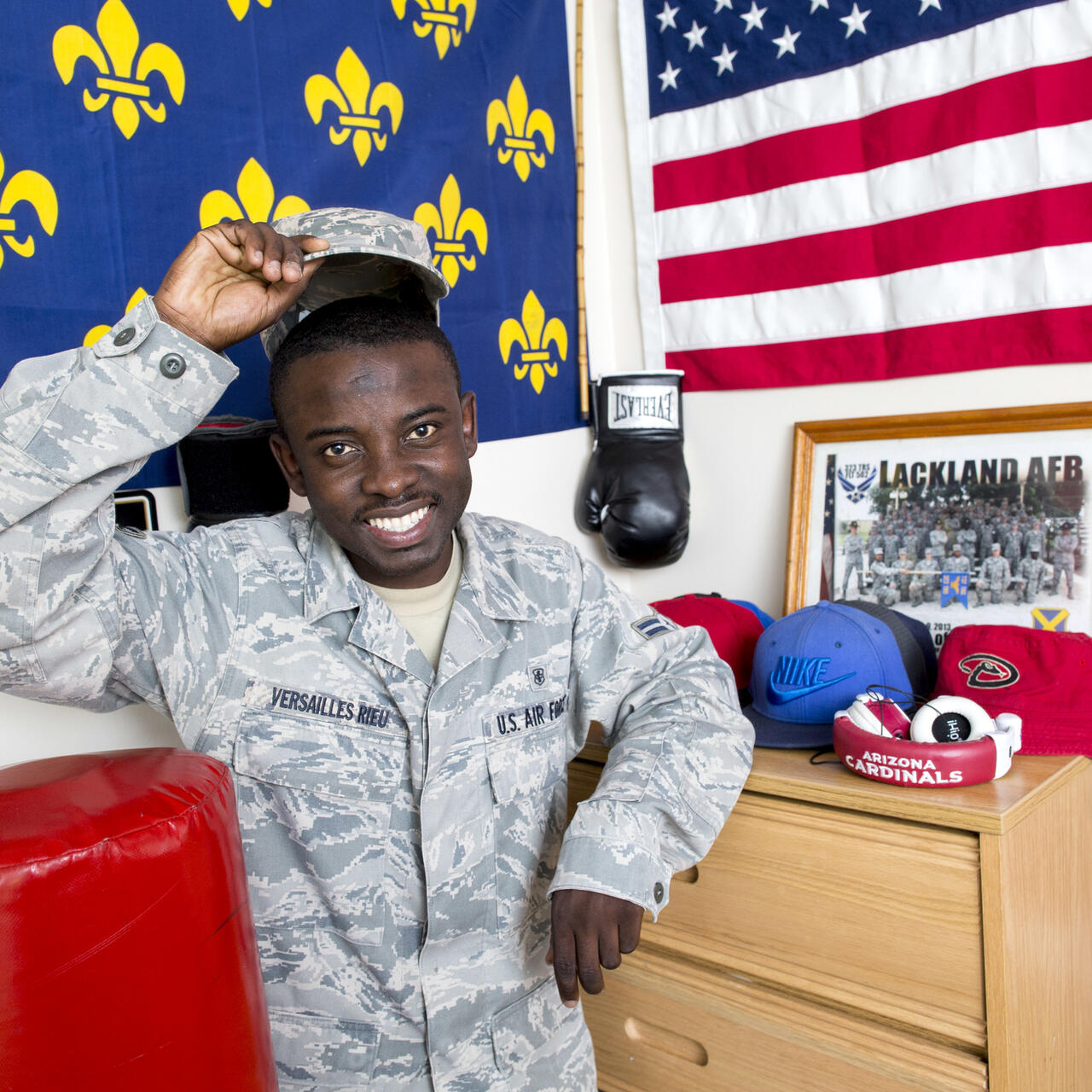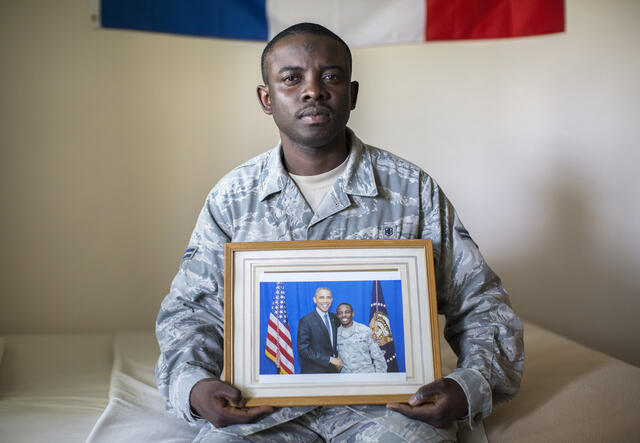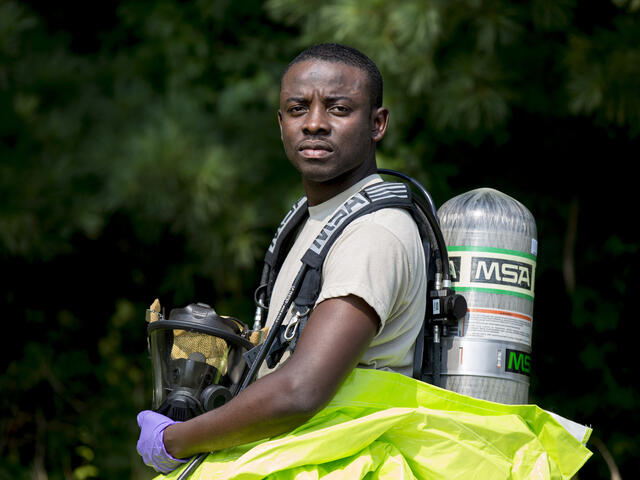
Living the dream while serving his country
Offered refuge by the United States, 24-year-old Nelson Versailles Rieu is now serving his new country in the Air Force, where his patriotic spirit caught the attention of the Commander in Chief himself.

Offered refuge by the United States, 24-year-old Nelson Versailles Rieu is now serving his new country in the Air Force, where his patriotic spirit caught the attention of the Commander in Chief himself.
When President Barack Obama traveled to Joint Base McGuire-Dix-Lakehurst in New Jersey December 2014 to welcome troops returning home from Afghanistan, he singled out one young man who, as he put it, represents “another part of the American story.”
Airman First Class Nelson Versailles Rieu had not served overseas—he was born overseas. In fact, the 24-year-old bioenvironmental engineering technician had only arrived in the United States four years earlier with his mother and siblings, after they fled a bloody civil war in the Republic of Congo.
President Obama related Nelson's story this way: “Nelson barely spoke a word of English. So he took high school classes—English, American history. He earned his high school diploma. And then he signed up to serve a country that wasn’t even yet fully his own. He raised his hand, took the oath, joined the United States Air Force. And then, this past Fourth of July, he put on his uniform, he raised his hand again, and he took another oath to become a citizen of the United States.”

Nelson epitomizes the patriotic spirit of many of the newly arrived refugees and immigrants the International Rescue Committee helps to resettle in the U.S., says Patricia Repolda, who works for the IRC in Tucson, Ariz., where the Rieus were relocated by the International Organization for Migration.
“His ambition is driven by his desire to give back to the country that has given him and his family freedom.”
The 29 IRC resettlement offices across the U.S. have helped tens of thousands of displaced people restart their lives by providing initial housing, furnishings, food and clothing. Staff and volunteers help refugees secure necessary documentation, enroll them in English classes, and provide job-readiness training and employment resources.
“Small things, like teaching clients how to take a bus and how to shake hands at job interviews, make an impact and integrate clients into their new communities,” says Repolda.
When you have a goal, you just have to go for it. Take it one step at a time.
The IRC placed Nelson in its youth employment program while he studied English and worked toward his GED. He took classes at a local community college, ran track, and performed volunteer work, activities that helped him make friends and acclimate to American culture.
A testament to his commitment and resourcefulness, Nelson managed in a few short years to obtain a green card, enlist in the military, and train in hazardous materials management. He hopes to join the Special Forces, and later, when he returns to civilian life, to use his experience to work as an environmentalist.
“There were many challenges, a lot of challenges,” admits Nelson, “but I’ve always been optimistic. I had faith that perseverance, study and hard work would get me past difficulties.”

Those qualities not only helped him achieve his dream but also led him to be recognized by his Commander in Chief, whom he met in person before the President gave his speech at the base. “
The feeling was incredible,” he recalls, but even better was the chance to visit with his family in Tucson afterward.
“I went back to Arizona to show them what I have become,” he says, proudly. He also visited his friends at the IRC resettlement office and offered his fellow refugees and immigrants there some advice.
“When you have a goal, you just have to go for it,” he told them. “Take it one step at a time.”